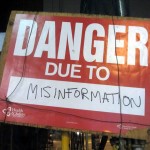 Misinformation about scientific topics remains a key concern for society. A recent paper from the University of Pennsylvania looks at the most effective way for misinformation to be corrected.
Misinformation about scientific topics remains a key concern for society. A recent paper from the University of Pennsylvania looks at the most effective way for misinformation to be corrected.
The researchers embarked on a comprehensive meta-analysis, employing rigorous quantitative methods to synthesize a wealth of prior research. This encompassed an impressive sample size of 60,000 participants involved in 74 distinct experiments. In each experiment, the focus was either to evaluate belief in misinformation concerning scientific matters or to present misinformation as accurate before subsequently introducing corrective measures.
More reliable information
While, on the whole, these corrective interventions fell short of achieving their intended outcomes, certain noteworthy patterns emerged. Specifically, the effectiveness of the corrections was enhanced under certain circumstances: when the subject matter of the correction possessed a more emotionally positive connotation compared to the initial misinformation, when the correction aligned with the ideological predispositions of the recipients, when the issue at hand was not marred by intense political polarization, and when the correction offered ample and comprehensive details elucidating the falsity of the earlier claims.
Significantly, the researchers observed that endeavors aimed at debunking misinformation relating to scientific domains, when viewed collectively, did not yield satisfactory results.
“Therefore, most of the science-relevant misinformation goes uncorrected even when a debunk is presented. People believe in the misinformation as much before as after the debunk,” the researchers explain. “This is quite notable, because corrections in other domains, such as reports about an accident or political event, do reasonably well, as shown by past research. However, this does not occur in the domain of misinformation about science.”
Is it possible?
The researchers embarked upon their study with a dual purpose: firstly, to assess the feasibility of correcting misinformation, and secondly, to discern the comparative effectiveness of various types of corrective measures.
In pursuit of these objectives, the team initially sought to ascertain whether negative or neutral misinformation proved more amenable to correction. Their inquiry substantiated that positive misinformation, characterized by its ability to engender positive emotions and generate favorable sentiments towards oneself, one’s prospects, or the world at large, presented a greater challenge in terms of rectification than negative misinformation did.
“We humans like to keep our rose-tinted glasses on, and we are resistant to debunking pseudoscience that feels good,” they explain. “It is far easier to correct hype about a chemical spill that didn’t happen than about deforestation that is happening. The reason is that it’s more pleasant to move from pessimistic to optimistic news rather than the other way around.”
Correcting the record
The quest to determine the most effective corrective messages also occupied the researchers’ attention. Their findings revealed that when a correction provides a comprehensive and detailed explanation, it enhances the likelihood of audience receptivity and successful debunking of the misinformation. This process unfolds in two stages.
Initially, the specific details and information contained within the correction furnish respondents with a fresh framework through which they can comprehend the event described in the misinformation. Subsequently, this new representation of the factors that led to the event supplants the initial framework established by the misinformation.
In addition, the researchers explored whether an individual’s attitudes or beliefs influenced the efficacy of correcting science-related misinformation. Their investigations disclosed that when a debunking contradicts people’s ideological leanings, recipients are more inclined to reject the correction and fortify their support for the misinformation.
Ideology matters
For instance, a person harboring left-leaning ideological inclinations is predisposed to accept a correction refuting claims that challenge the existence of climate change. Conversely, when a debunking clashes with people’s ideological convictions, they are more prone to dismiss the correction and reinforce their allegiance to the misinformation.
The presence of political polarization surrounding the scientific issue under discussion also emerges as a crucial factor. The study revealed that when a topic becomes polarized, as exemplified by the contentious realm of COVID-19 vaccination, corrections often falter.
Nevertheless, strategies exist to rectify misinformation, provided that obstacles are duly acknowledged and circumvented. The authors recommended several approaches, including employing detailed corrections, fostering familiarity with the topic among the audience, and endeavoring to dissociate discussions on science from the realm of politics to reduce polarization. However, if the topic is already entrenched in political polarization, the correction must be formulated in a manner that aligns with the recipient’s political inclinations.